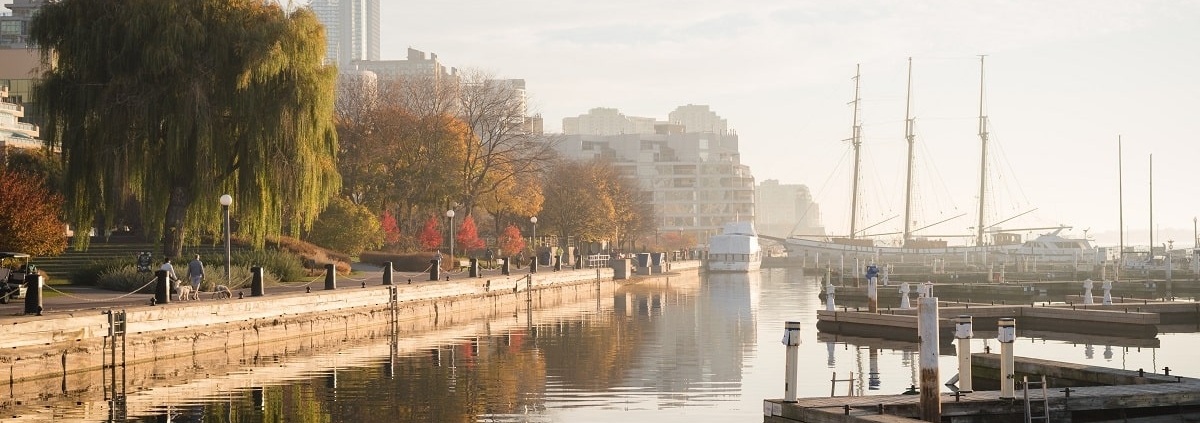Toronto Vacation Rental Market Overview
The vacation rental market in Toronto is huge, as it is an extremely popular destination both among tourists and entrepreneurs in Canada. Many aspiring hosts are selecting it as a place for launching their business, there are many details they should discover beforehand. This article is devoted to highlighting such details and making it easier for our readers to make informed decisions.
Advantages of Choosing Toronto as an Airbnb Business Location
Toronto has several major advantages over regions of Canada in terms of opening an Airbnb business. First of all, it is the city’s popularity among tourists. Just like in most other places in the country, the demand here is seasonal, however, there are still enough tourists in other seasons to keep local short-term rentals viable.
The second important benefit Toronto grants to local entrepreneurs relate to the revenues. The homes here are booked out for higher prices than in less popular regions, allowing local hosts to generate more revenues.
Last but not least, there is a large area of Toronto. Even though its city center is densely packed with Airbnbs, there are still some places where a new business of this kind can be opened. It has a huge benefit in comparison to other highly-populated locations. Typically, such places are extremely hard to enter for aspiring businessmen.
The advantages the city grants to its hosts come with only a few downsides, the first of them being the intense competition in some districts. As we will see in the following section, the hosts still manage to make their Airbnbs viable, although the number of neighboring properties has to be taken into account as it has a massive effect on the revenues.
The second downside relates to the law. This means it is impossible to purchase a property exclusively for renting it out and managing multiple such properties, at least, without registering your business as a legal company. It is important to keep in mind that similar rules are applied in most other regions of Canada as well, so it is more of a country-wide drawback for Airbnb hosts.
Learn more about Airbnb management services in Toronto.
Key Metrics of Airbnbs in Toronto
The key metrics also have to be analyzed before opening an Airbnb in Toronto. Thankfully, there is enough data available to check the performance of existing properties and base your further decisions on that information. At the time of writing, there are almost 10,000 active short-term rentals in the city. As we have already mentioned, most of these properties are located in the city center or around the shore of Lake Ontario. Some districts like Scarborough, North York, and Rexdale are not so occupied with active rentals.
The annual Average Daily Rate in Toronto is $157. It is subject to seasonal fluctuation, as it drops from $195 in September to $131 in February. The same applies to Occupancy Rates, which average 78% throughout the year but drop from 93% in August to only 50% in January. Taking into account the number of active rentals in the city, an annual average Occupancy Rate of 78% is very decent.
The Revenues of local hosts average $1,969 per property per month throughout the year. As you might have expected, they are also subject to seasonality. Local hosts make the largest Revenues in September when their properties generate $2,906, and the smallest Revenues in January, where they only receive $996 worth of revenue. This information is extremely important, as the City of Toronto has a limit on the number of nights a property can be rented out for. Thus, an entrepreneur has to choose the most beneficial periods of the year to operate successfully.
8 reasons to buy Airbnb property in Toronto you can find here.
Short-Term Rental Business Regulation in Toronto
The legislation of this market in Toronto is mostly aimed at two various types of enterprises: short-term rental companies and operators. In these terms, an individual who is sharing their home is considered an operator, so we will mostly focus on this form of conducting business in the article, as it is the way it is done with Airbnb.
Such operations are only possible with principal residences. This implies that individuals can only use their homes, which they use for identification. Listings of such homes have to be registered with the City of Toronto. To do so, you will need to visit the official website of the city and find the corresponding section there. The procedure costs $50 and its result is active for one year, after which it has to be renewed.
It is necessary to display the registration number in all listings you post online. The city might also request information about the performance of your Airbnb, so it is important to properly record the numbers of nights the property was rented out as well as the daily and total prices charged for the stays.
In the previous section, we mentioned that there is a limit to renting out your property in Toronto. The annual limit for entire home listings is 180 days. However, it is possible to rent out up to three bedrooms with no limit. Here, it is also important to mention that out of almost 10,000 active rentals in Toronto, 6,850 (69%) are entire homes, while only 3,022 (30%) are private rooms.
In case you’re not hosting your principal residence or acting as a renter or lessee, make sure to visit the official website of Toronto to discover the rules applicable to your specific case. These are different forms of businesses that have their own legislation.
Explore:
How to Get a Business License in Toronto?
In the case of Airbnb, you do not have to obtain an Airbnb license. It is the company that provides brokerage services that have to license its operations. Airbnb has such a license, so you can operate your business as long as you comply with the criteria mentioned in the previous section. However, it is important to keep in mind that it is still necessary to register your property on the website of the City of Toronto and display your registration number in your listings.
In case you wish to obtain a license as a short-term rental company, there are completely different rules you should know about. A license can be obtained by individuals or small companies, as the size does not matter as long as it complies with the latest bylaw. Applying for such a license costs $5,100, while an additional $1.02 is charged for every night a property is booked for.
Taxation of Short-Term Rentals in Toronto
The taxation of short-term rentals in Toronto is quite simple and straightforward. The main tax you will need to pay as a host is the Municipal Accommodation Tax (MAT), which has to be collected for all times the property has been rented out for less than 28 days. The good news is that Airbnb collects this tax for the hosts, making it easier to operate the business. At the time of writing, the tax is 4 percent for most types of properties. You can always check the up-to-date information on the official website of the City of Toronto.
You should also visit the same website, in case you’re planning to rent out your property for periods of more than 28 days. For such rentals, the legislation and the rules are completely different. The market conditions for such rentals may vary as well, so this market overview is mostly applicable to properties that are rented for less than 28 days.
Read also more about Airbnb taxes in Vancouver.











